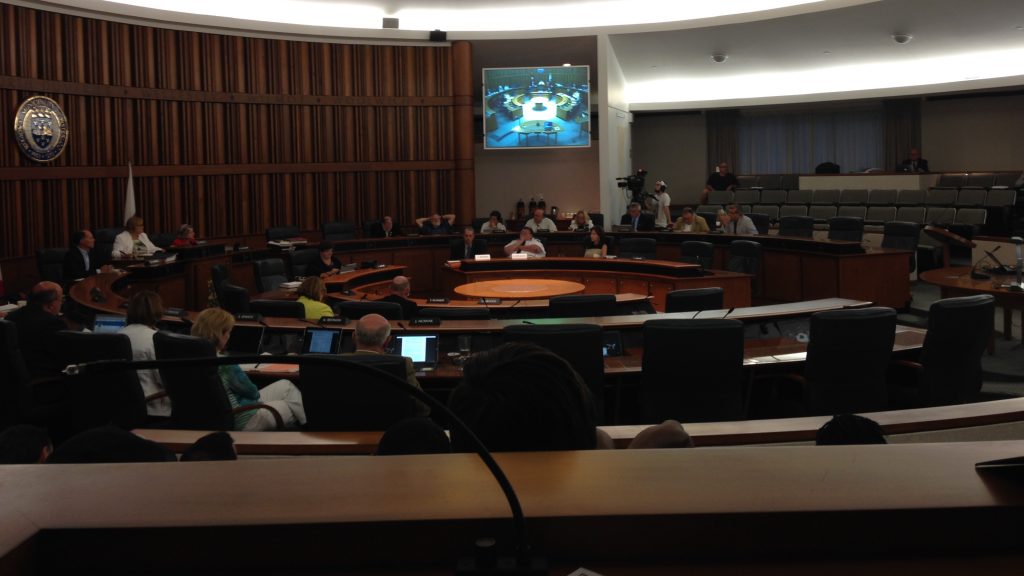Ghomeshi’s verdict highlights what’s wrong with justice system:Experts
Posted Mar 24, 2016 12:42:36 PM.
Last Updated Mar 24, 2016 03:45:24 PM.
This article is more than 5 years old.
TORONTO – The ruling formally acquitting Jian Ghomeshi on several counts of sexual assault starkly illuminates the various flaws in a legal system that rarely dispenses justice to victims, lawyers and women’s groups said Thursday.
Most agreed that Justice William Horkins had little choice but to find the former CBC star not guilty on all charges given the evidence before him.
Horkins, citing devastating cross-examination that exposed sometimes stark inconsistencies in witness accounts and memories, said the shifting recollections of Ghomeshi’s three accusers left him with reasonable doubt as to whether the assaults took place.
University of Toronto law professor Brenda Cossman acknowledged that the witness testimony in the case was highly damaging, describing defence lawyer Marie Henein as “decimating” the stories each woman told on the stand.
But Cossman said the trial also highlighted the enormous pressure victims are under to live up to pre-conceived notions of how the ideal witness thinks and behaves, adding the approach summed up “everything that’s wrong” about the way in which sex assault laws are applied in the courtroom.
“The outcome isn’t surprising, but I think that the message being sent is pretty clear to potential future sexual assault complainants,” Cossman said in a telephone interview.
“If there’s anything less than perfect in your behaviour before, during and after the sexual assault, don’t bother coming forward because your credibility will be decimated.”
Horkins pulled no punches in his evaluation of the witness testimony in the case. He described the three women variously as “playing chicken with the justice system,” being manipulative and even outright lying.
His assessment was due largely to Henein’s withering cross-examination, which revealed emails, photos and handwritten letters that she argued suggested a desire for more contact with the former “Q” host.
Horkins stressed that he was more concerned with an apparent lack of honesty than by their interactions with Ghomeshi, but did say that their conduct raised questions.
“Each complainant in this case engaged in conduct with Mr. Ghomeshi after the fact which seems out of harmony,” he wrote in the decision.
Janine Benedet, co-director of the Centre for Feminist Legal Studies in Vancouver, said misleading statements in the courtroom were concerning, but mused on whether or not complete honesty would have made a difference in the trial outcome.
“There are two things here. There’s the information that was withheld or was lied about, then there is, was that information really relevant to whether we believe they’ve been sexually assaulted or not,” she said.
“It’s that second part that I think is concerning. There’s a reason why they were afraid for all that to come out, and part of it is because we judge women very harshly.”
Tamar Witelson, legal director of Metrac Action on Violence, is as concerned about the treatment potential victims face on the stand as they do on the street.
The Ghomeshi trial, she said, vividly illustrated the humiliating process that awaits women who do decide to press ahead with charges.
“The complainants went through what appeared to be a pretty horrific experience,” Witelson said of the trial process. “Is that the price that you have to pay in order to get a positive outcome through the criminal justice system? Is it worth it?”
Women’s advocacy groups contend that it is, citing the national conversation that erupted when allegations against Ghomeshi first surfaced in 2014.
Nicole Pietsch of the Ontario Coalition of Rape Crisis Centres said the courtroom drama that played out before the public only reinforced the campaigns, hashtags and other survivor-awareness topics that came to light.
“All the things we heard from victims of sexual violence that said ‘these are the reasons why no one talks about it,’ that’s what we saw roll out in the court, in the cross-examination in particular, and then also in this verdict too,” she said.
Some seem hopeful that the spectacle and outcome of the trial could lead to systemic change down the road.
Prime Minister Justin Trudeau said he looked forward to hearing “thoughtful proposals” on ways to address violence against women.
Amanda Dale, Executive Director of the Barbra Schlifer Commemorative Clinic, is similarly optimistic. She believes the advocacy movement has gained enough momentum to carry them past any potential roadblocks caused by the verdict.
“Whenever these large systems that we have put our faith in disappoint us, we have a period of mourning and feeling discouraged and licking our wounds,” she said.
“But I think there’s been a momentum built here that isn’t going to go away easily. And I think in fact, the anger and outrage may fuel another round of reform.”
Follow @mich_mcq and @ploriggio on Twitter










